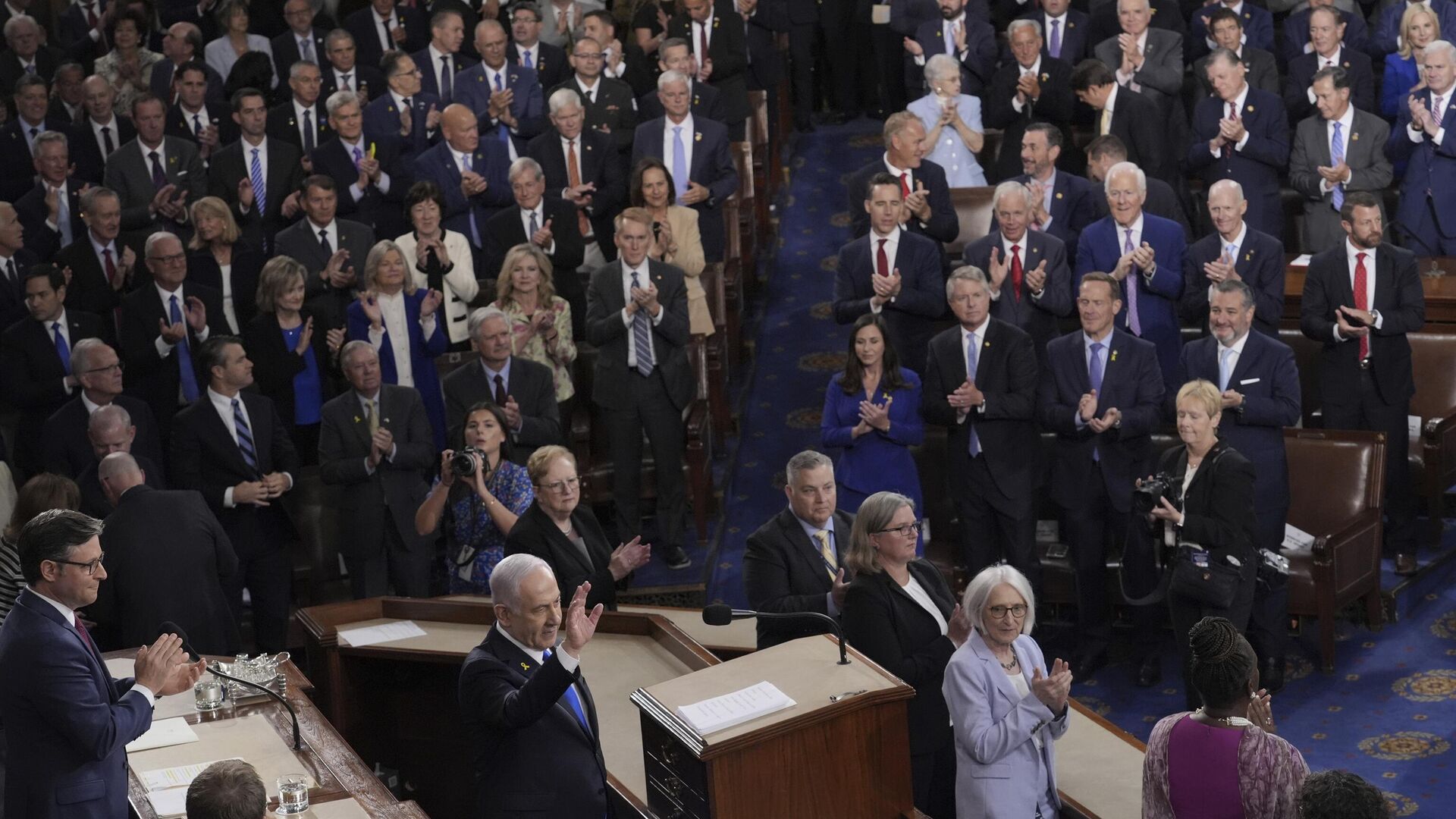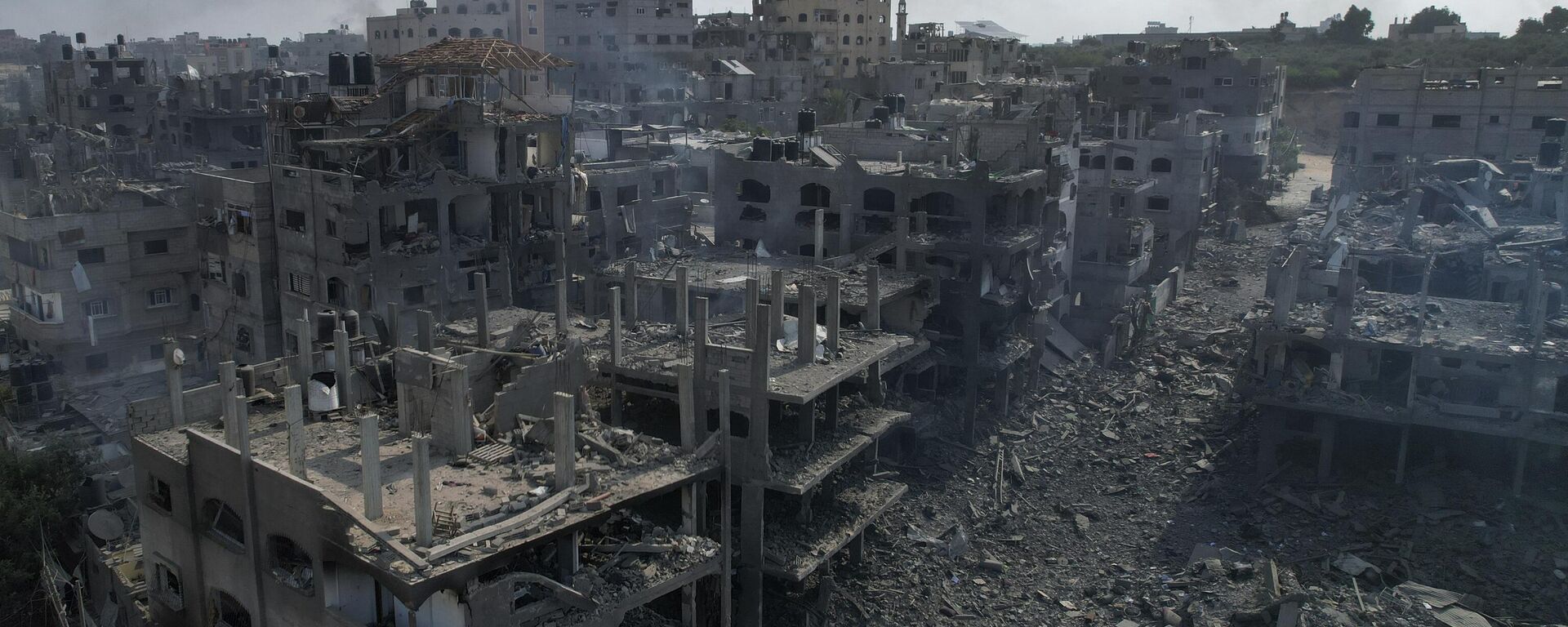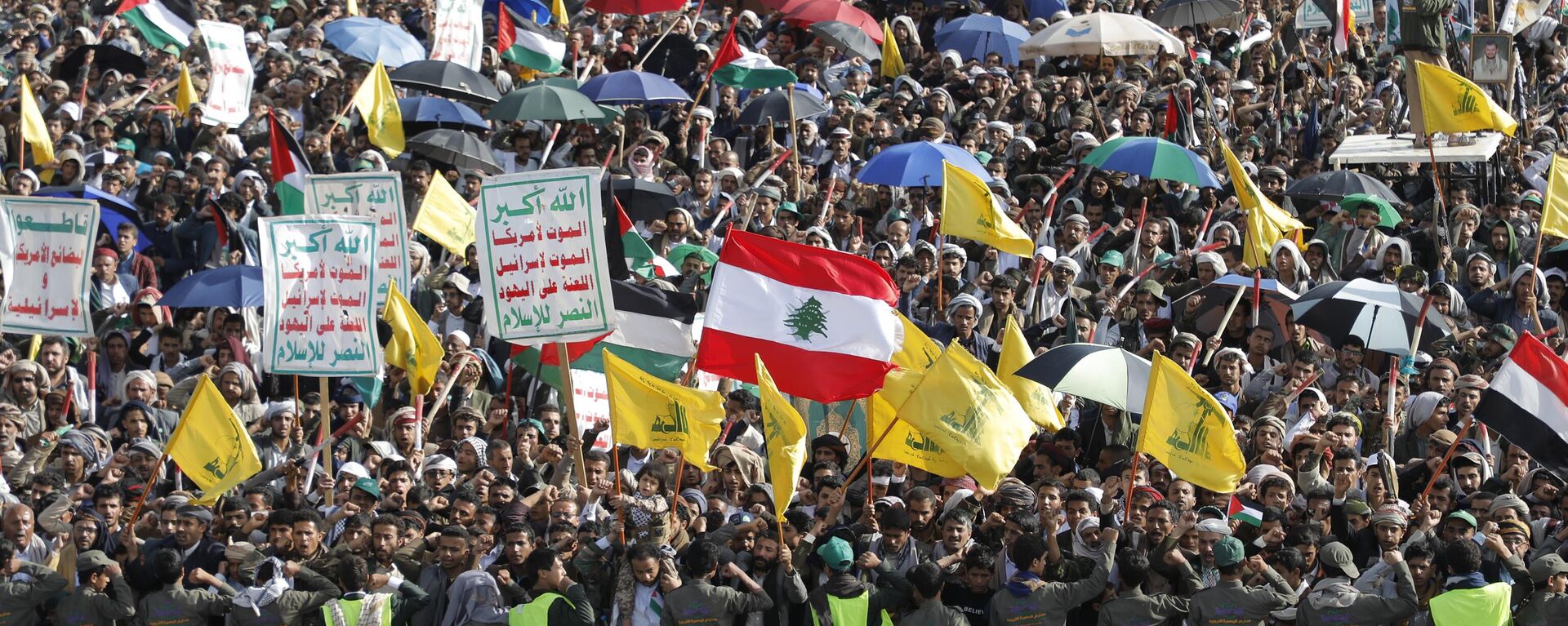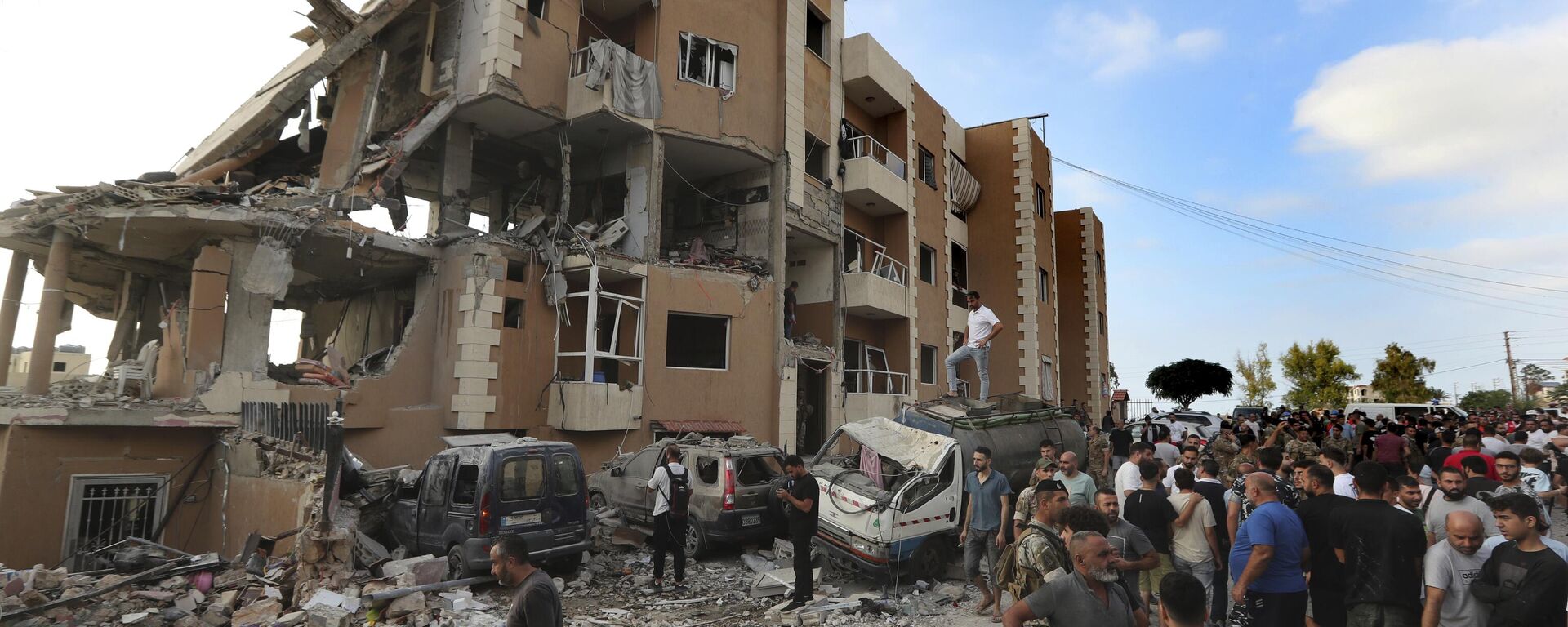Details on Israeli Plan to Hit Iran Designed to Remind Americans They’re Joined at the Hip to Israel

© AP Photo / J. Scott Applewhite
Subscribe
Anonymous officials told US media on Monday that Prime Minister Netanyahu has informed the White House of Israeli plans to attack Iranian military sites, rather than oil or nuclear facilities as earlier threatened, and do so before the November 5 elections. Sputnik asked Mideast politics experts what the ‘leaked’ plans are designed to signal.
Legacy media stories like Monday’s Washington Post report that Israel plans to strike Iranian military sites before the November vote are designed “to remind Americans that they cannot think and countenance thinking about separating American interests from those of Israel,” Dr. Isa Blumi, associate professor at Stockholm University’s Department of Asian and Middle Eastern Studies, told Sputnik.
“What this proposal of staging another confrontation with Iran just before the elections is designed to do is force the political parties, those who are running for president, those who are running for the Senate, for the Congress to all ‘stand in solidarity’ with Israel,” Dr. Blumi said, pointing to the immense power the Israel lobby carries with the US political class.
A repledging of loyalty is particularly important now, the professor believes, given “the fact that the American population is largely conflicted” about the wars in Gaza and Lebanon, with “the images of civilians being murdered, people burnt alive, the bombing of Beirut all now very much complicating the storyline” they’ve grown accustomed to hearing from their leaders and the press.
In this light, a new round of Israeli aggression against Iran and the inevitable Iranian response would “return American politics, the discourse around American politics into…a campaign to defend Israel from the easy ‘enemy of Western civilization’” – the Islamic Republic and its Axis of Resistance. This could prove particularly relevant if US troops found themselves in harm’s way, with any potential escalation “retold” and branded “as ‘a war of self-defense’ for Israel vis-à-vis the Iranians and its allies,” the observer said.
Blumi expects Iran – whose political system is far more complex and nuanced than Western stereotypes give it credit for, to do its best to avoid an escalation. “If, however, Israel and the Americans actually engage in economic warfare and try to destroy Iranian oil infrastructure, for instance, then we may see the war expand,” he warned.
Why the Shift in Tone?
WaPo’s reporting on an Israeli focus on Iranian military assets comes following two weeks of threats by Israeli officials, lawmakers and media about strikes on Iranian nuclear and energy sites, following Iran’s October 1 Iranian ballistic missile attack on Israeli military and intelligence facilities in response to a months-long series of Israeli provocations.
The shift in tone may come out of the realization that if the IDF proceeds with attacks targeting Iranian energy facilities, Tehran could retaliate with a concentrated strike on a key Israeli trade hub, and major gas exploration and extraction infrastructure, says Furkan Halit Yolcu, security expert and researcher at Sakarya University’s Middle East Institute.
“When we imagine a scenario where Israel hits oil fields and important institutions like parliamentary buildings, government buildings, sites where large industrial buildings are located, I think Iran’s target is going to be Haifa – a coastal area where Israel’s biggest trade routes are. Haifa’s coastal area is really close to the Leviathan natural gas reserve search area. I think that’s going to immensely impact the Israeli search for natural gas in the eastern Mediterranean Sea,” Yolcu told Sputnik.
“[Haifa] is really valuable for Israel because almost half of exports and imports are made through that coast. So paralyzing that part of Israel is going to hurt industry and production and the employment market – whatever you can imagine about Israel’s economy,” the observer emphasized.
An estimated 98% of Israel’s foreign trade passes through its maritime ports, including Haifa, Ashdod and Eilat, with Haifa processing around 30 million tons of cargo per year, accounting for 32% of all containers arriving in the country, and serving as a major regional transshipment hub.
The blow that Israel would face from a potential Iranian attack on Haifa would exacerbate the economic strain already facing Tel Aviv along its ‘southern front’, with Yemen’s Houthi militias effectively shutting down Israel’s Red Sea port of Eilat and driving it into bankruptcy amid an unceasing campaign of drone and missile attacks on suspected Israeli-linked merchant ships in the region, which have helped put a serious crimp on Tel Aviv's economic prospects.
As for WaPo’s reporting on Israeli plans to strike before November 5, this is connected with the realization, both in Washington and Tel Aviv, that a new escalation in the Middle East could have a dramatic impact on energy prices, markets and supply chains, Yolcu says.
An Israeli attack would likely serve to “increas[e] energy prices, which is going to help Russia, help China a bit, help Iran immensely. Hitting the oil fields and creating a supply [shortage] in the energy sector is going to help Iran in return. That’s one of the reasons why the United States is trying to avoid Israel hitting oil fields and energy industry institutions and sites,” the observer explained.
Therefore, Israel is likely testing the waters and “checking in” with the US via these media reports citing anonymous officials to avoid any unexpected unpleasant reactions from Washington, whose continued sponsorship is critical to fueling Israel’s military machine, Yolcu said.




